Mental math skills Numbers Worksheets for 7-Year-Olds
5 filtered results
-
From - To
Boost your child's confidence with our "Mental Math Skills Numbers Worksheets for 7-Year-Olds"! Specially designed to make learning fun, these printable worksheets help children master essential numeric operations, sharpen problem-solving techniques, and enhance their ability to think quickly and accurately. Each worksheet presents engaging exercises that encourage independent practice and foster a love for mathematics. Perfect for both classroom and home use, our resources support continuous learning and help young minds grasp vital math concepts effortlessly. Empower your 7-year-old with the tools they need to succeed in their mathematical journey.
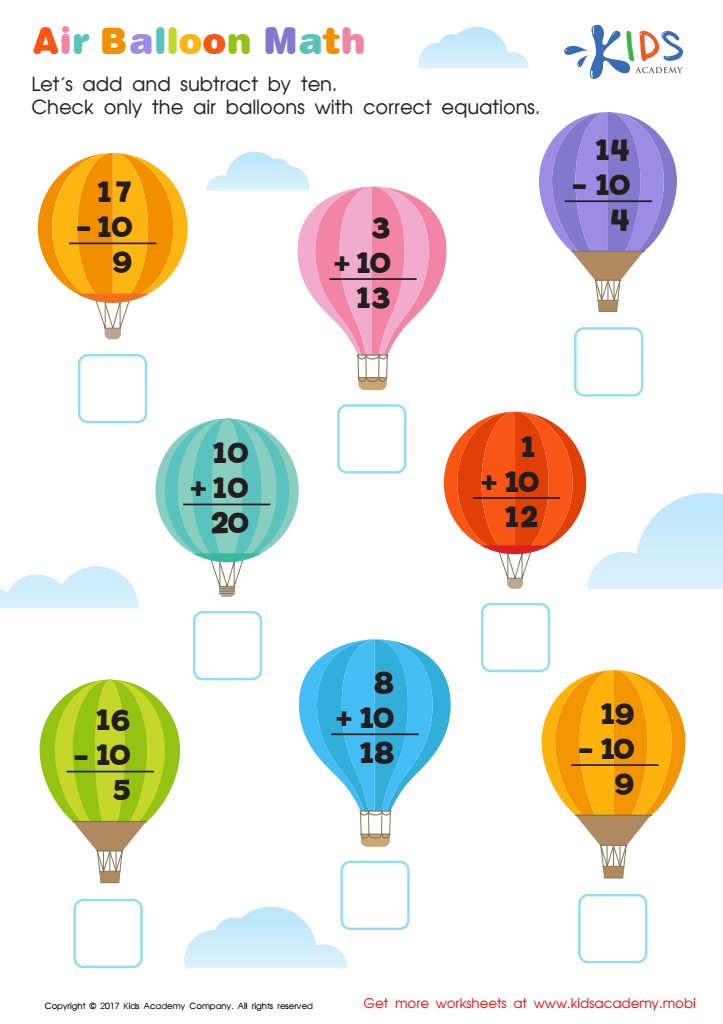

Air Balloon Math Worksheet
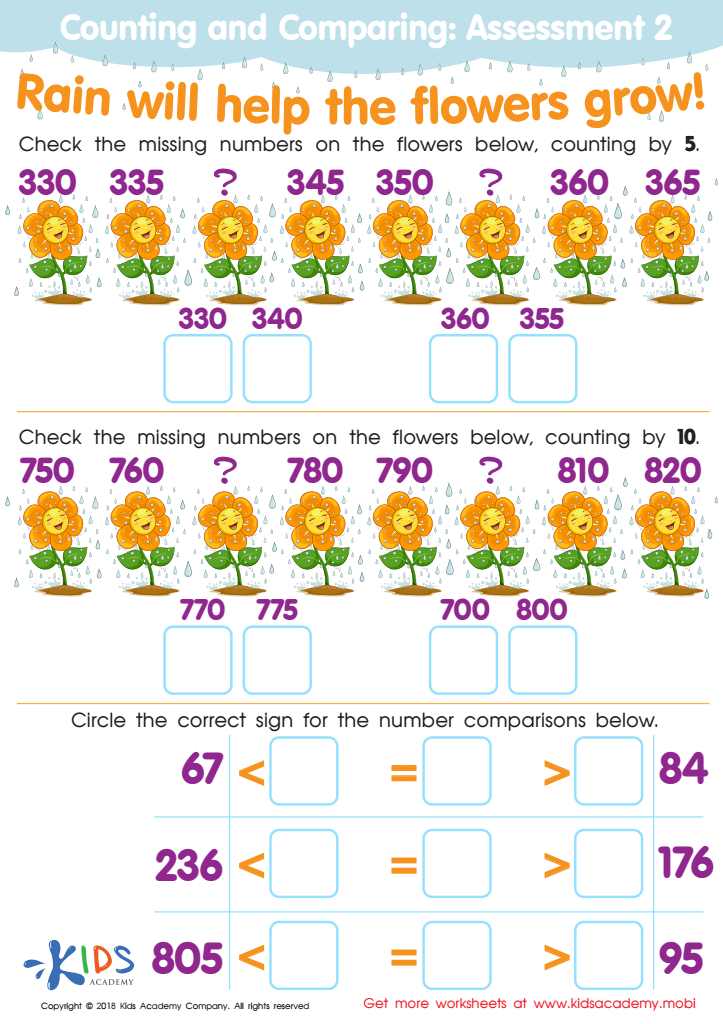

Counting and Comparing: Assessment 2 Worksheet
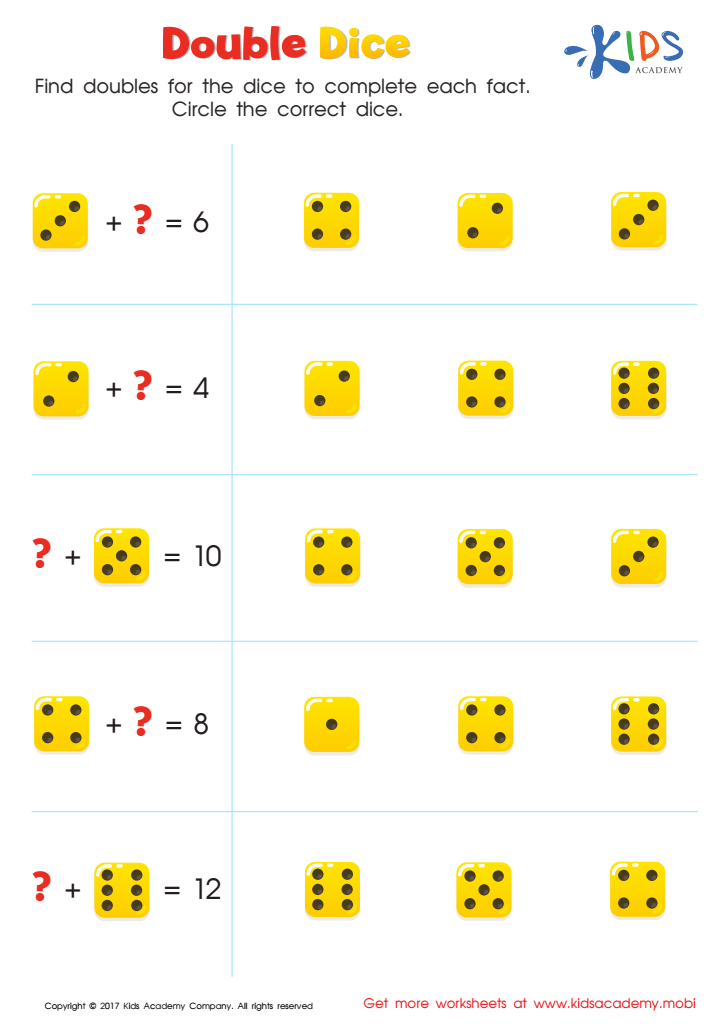

Addition Facts: Double Dice Worksheet
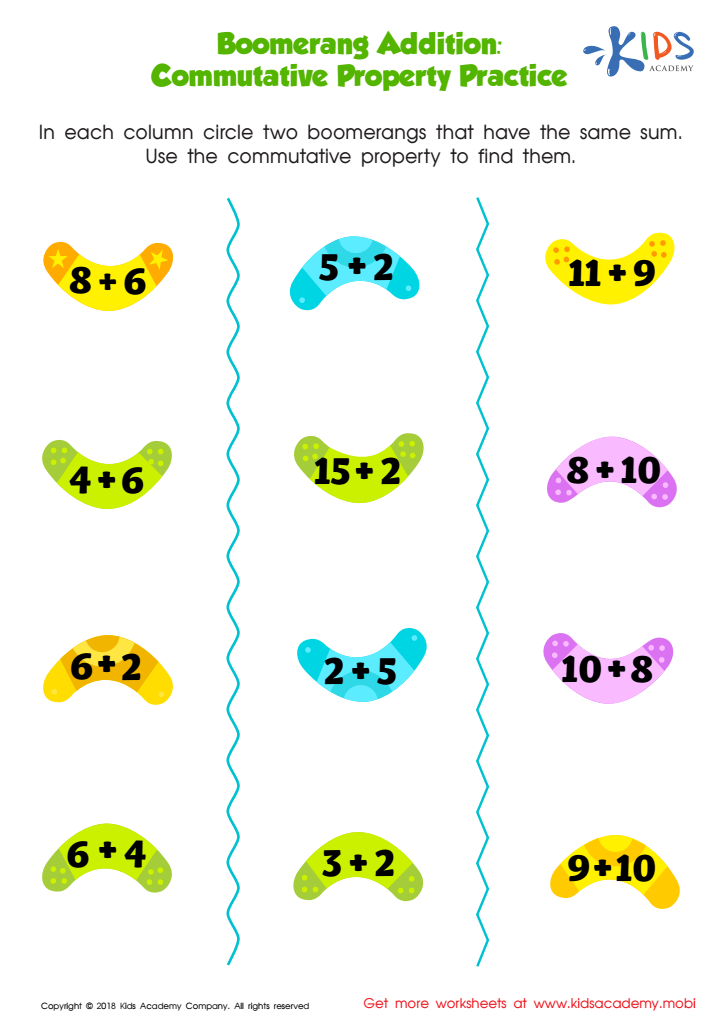

Boomerang Addition Worksheet
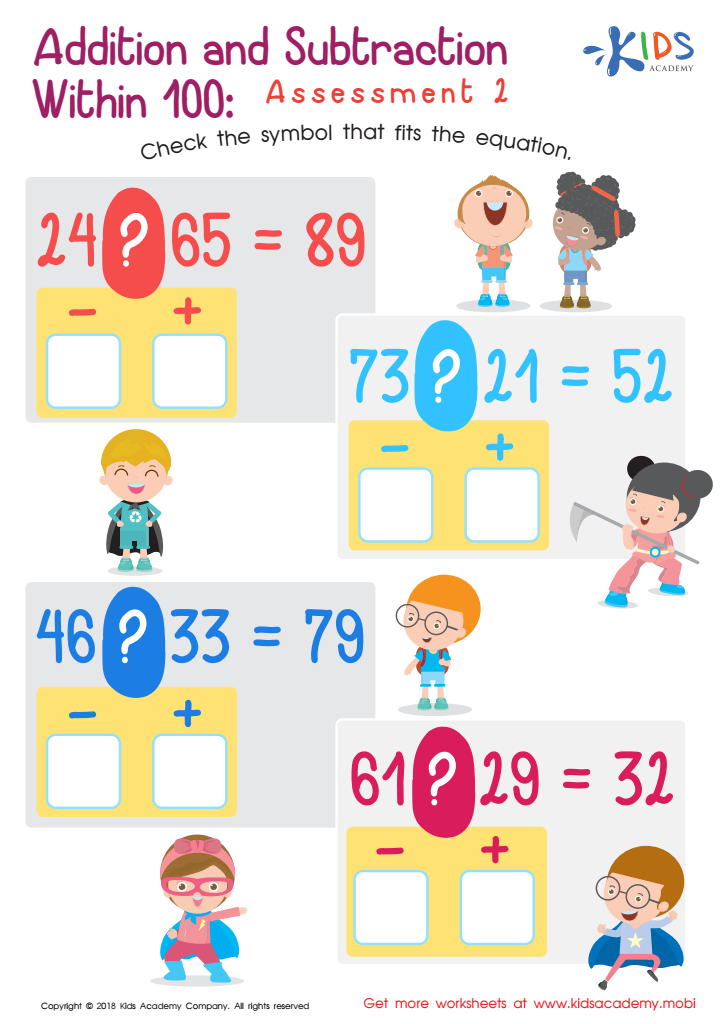

Addition and Subtraction Within 1: Assessment 2 Worksheet
Mental math skills are essential for 7-year-olds for several reasons, all of which significantly impact their overall development and academic success. First, mental math promotes number sense, enabling children to understand relationships between numbers, recognize patterns, and develop logical thinking. These foundational skills are critical as they set the stage for more complex math topics encountered later.
Practicing mental math improves a child's concentration and memory. As children solve problems in their heads, they enhance their capacity to retain information and focus, attributes that are beneficial across all learning areas. Mental math requires quick thinking, fostering cognitive agility that can contribute to better problem-solving and decision-making skills.
Moreover, parents and teachers should recognize that proficiency in mental math boosts a child's confidence in their abilities. Successfully solving problems mentally encourages a positive attitude towards math and learning in general. This confidence can inspire engagement and a willingness to tackle more challenging problems both in math and other subjects.
Finally, in today’s technology-driven world, mental math cultivates critical life skills, offering practical benefits for everyday situations like calculating time, managing money, or assessing quantities. By strengthening mental math skills, parents and teachers are equipping their children with vital tools for academic success and efficient everyday function.
 Assign to My Students
Assign to My Students




















